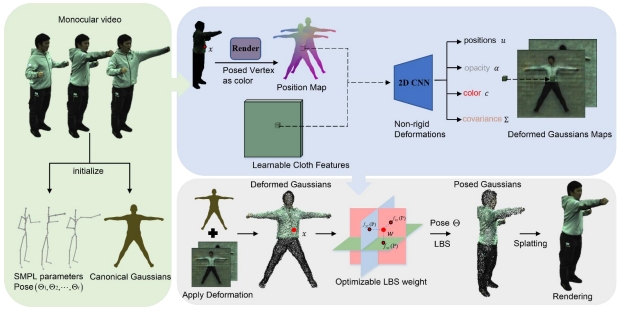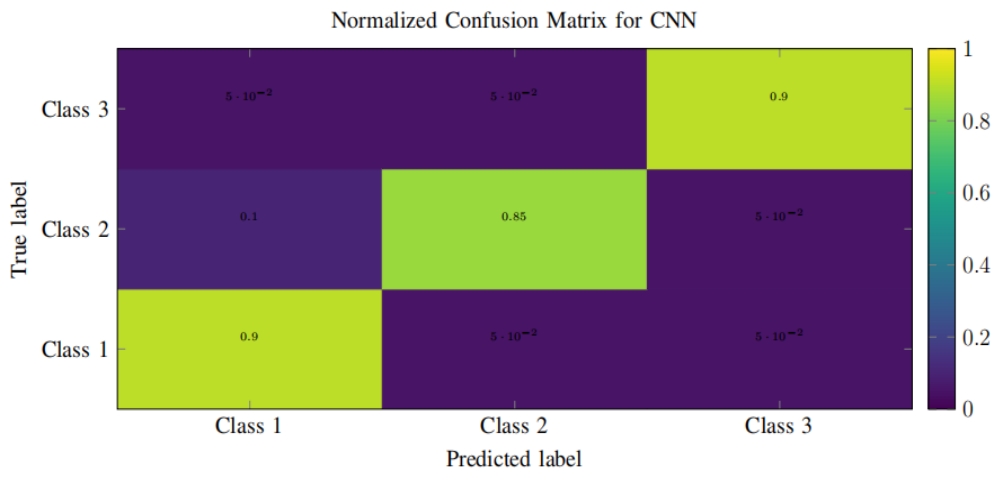
Asia Pacific Academy of Science Pte. Ltd. (APACSCI) specializes in international journal publishing. APACSCI adopts the open access publishing model and provides an important communication bridge for academic groups whose interest fields include engineering, technology, medicine, computer, mathematics, agriculture and forestry, and environment.



Trends in game learning analysis: A systematical review of the expert literature
Vol 3, Issue 2, 2022
Download PDF
Abstract
This article presents a systematic review of the specialized literature using the meta-synthesis method to learn about the theoretical and empirical trends that can be found in the scientific literature on game learning analytics. The search was carried out in 17 databases and 153 results were obtained. After applying certain exclusion criteria, 17 scientific research articles were admitted for analysis. The information was classified into design, validation and implementation trends. The design findings suggest a tendency to simulate real environments with the aim of validating not only the serious game, but also the learning obtained by applying pre- and post-test measurements. A varied implementation was observed between educational purposes, training or support for people with disabilities. Likewise, pre-designed games and author’s games with individual interactions were used.
Keywords
References
- De Gloria A, Hutchison D. Games and learning alliance. In: De Gloria A (editor). Berlin: Springer; 2014. doi: 10.1007/978-3-319-12157-4.
- Freire M, Serrano-Laguna Á, Manero B, et al. Game learning analytics: Learning analytics for serious games. In: Spector MJ, Lockee BB, Childress MD (editors). Learning, design, and technology. Berlin: Springer; 2016. p. 1–29. doi: 10.1007/978-3-319-17727-4.
- Alonso-Fernández C, Cano AR, Calvo-Morata A, et al. Lessons learned applying learning analytics to assess serious games. Computers in Human Behavior 2019; 99(9): 301–309. doi: 10.1016/j.chb.2019.05.036.
- Alonso-Fernández C, Pérez-Colado IJ, Calvo-Morata A, et al. Applications of Simva to simplify serious games validation and deployment. Revista Iberoamericana de Tecnologías del Aprendizaje 2020c; 15(3): 161–170. doi: 10.1109/RITA.2020.3008117.
- Guzmán-Rivera MA, Escudero-Nahón A, Canchola-Magdaleno SL. “Gamification” of teaching science, technology, engineering and mathematics: Conceptual cartography. Sinéctica, Revista Electrónica de Educación 2020; 54: 1–20. doi: 10.31391/S2007-7033(2020)0054-002.
- Zainuddin Z, Chu SKW, Shujahat M, et al. The impact of gamification on learning and instruction: A systematic review of empirical evidence. Educational Research Review 2020; 30: 100326. doi: 10.1016/j. edurev.2020.100326.
- Abt CC. Serious games. USA: University Press of America; 1987.
- Michael D, Chen S. Serious games: Games that educate, train, and inform. Muska & Lipman/Premier-Trade; 2005. doi: 10.5555/1051239.
- Calvo-Morata, Rotaru DC, Alonso-Fernández C, et al. Validation of a cyberbullying serious game using game analytics. IEEE Transactions on Learning Technologies 2020; 13(1): 186–197. doi: 10.1109/TLT.2018.2879354.
- Niemelä M, Kärkkäinen T, Äyrämö S, et al. Game learning analytics for understanding reading skills in transparent writing system. British Journal of Educational Technology 2020; 51(6): 2376–2390. doi: 10.1111/bjet.12916.
- Leary H, Walker A. Meta-analysis and meta-synthesis methodologies: Rigorously piecing together research. TechTrends 2018; 62(5): 525–534. doi: 10.1007/s11528-018-0312-7.
- Grijalva Grijalva PK, Cornejo GE, Gomez R, et al. Collaborative tools for systematic reviews. Revista Espacios 2019; 40(45): 9.
- Sterne JA, Hernán MA, Reeves BC, et al. ROBINS-I: A tool for assessing risk of bias in non-randomised studies of interventions. The BMJ 2016; 355: i4919. doi: 10.1136/bmj.i4919.
- Alonso-Fernández C, Calvo-Morata A, Freire M, et al. Evidence-based evaluation of a serious game to increase bullying awareness. Interactive Learning Environments 2020a; 28(1): 1–11. doi: 10.1080/10494820.2020.1799031.
- Calvo-Morata A, Alonso-Fernández C, Freire-Morán M, et al. Game learning analytics, facilitating the use of serious games in the class. Revista Iberoamericana de Tecnologías del Aprendizaje 2019; 14(4): 168–176. doi: 10.1109/RITA.2019.2952296.
- Melo SA, Paes A, Clua EWG, et al. Detecting long-range cause-effect relationships in game provenance graphs with graph-based representation learning. Entertainment Computing 2019; 32: 100318. doi: 10.1016/j.entcom.2019.100318.
- Capatina A, Bleoju G, Rancati E, et al. Tracking precursors of learning analytics over serious game team performance ranking. Behaviour & Information Technology 2018; 37(10–11): 1008–1020. doi: 10.1080/0144929X.2018.1474949.
- Rotaru DC, García-Herranz S, Morán MF, et al. (editors). Using game technology to automatize neuropsychological tests and research in active aging. ACM International Conference Proceeding Series; 2018 Mar 13–16; London. New York: Association for Computing Machinery; 2018. p. 65–70. doi: 10.1145/3284869.3284887.
- Tsikinas S, Xinogalos S. Towards a serious games design framework for people with intellectual disability or autism spectrum disorder. Education and Information Technologies 2020; 25(4): 3405–3423. doi: 10.1007/s10639-020-10124-4.
- Alonso-Fernández C, Martínez-Ortiz I, Caballero R, et al. Predicting students’ knowledge after playing a serious game based on learning analytics data: A case study. Journal of Computer Assisted Learning 2020b; 36(3): 350–358. doi: 10.1111/jcal.12405.
- Cano AR, Fernández-Manjón B, García-Tejedor ÁJ. Using game learning analytics for validating the design of a learning game for adults with intellectual disabilities. British Journal of Educational Technology 2018; 49(4): 659–672. doi: 10.1111/bjet.12632.
- Charleer S, Verbert K, Gutierrez F, et al (editors). Towards an open standard for gameplay metrics. CHI PLAY 2018-Proceedings of the 2018 Annual Symposium on Computer-Human Interaction in Play Companion Extended Abstracts; 2018 Oct 28–31; Melbourne. New York: Association for Computing Machinery; 2018. p. 399–406. doi: 10.1145/3270316.3271529.
- Ruipérez-Valiente JA, Kim YJ. Effects of solo vs. collaborative play in a digital learning game on geometry: Results from a K12 experiment. Computers and Education 2020; 159: 104008. doi: 10.1016/j. compedu.2020.104008.
- Nguyen A, Gardner LA, Sheridan D. A framework for applying learning analytics in serious games for people with intellectual disabilities. British Journal of Educational Technology 2018; 49(4): 673–689. doi: 10.1111/bjet.12625.
- Cloude EB, Dever DA, Wiedbusch MD, et al. Quantifying scientific thinking using multichannel data with crystal island: Implications for individualized game-learning analytics. Frontiers in Education 2020; 5: 1–21. doi: 10.3389/feduc.2020.572546.
- Peddycord-Liu Z, Cody C, Kessler S, et al. (editors). Using serious game analytics to inform digital curricular sequencing: What math objective should students play next? Proceedings of the Annual Symposium on Computer-Human Interaction in Play; 2017 Oct 15–18; Amsterdam. New York: Association for Computing Machinery; 2017. p. 195–204. doi: 10.1145/3116595.3116620.
- Barry DM, Ogawa N, Dharmawansa A, et al. Evaluation for students’ learning manner using eye blinking system in Metaverse. Procedia Computer Science 2015; 60: 1195–1204. doi: 10.1016/j.procs.2015.08.181.
- Kanematsu H, Kobayashi T, Barry DM, et al. Virtual STEM Class for nuclear safety education in Metaverse. Procedia Computer Science 2014; 35: 1255–1261. doi: 10.1016/j.procs.2014.08.224.
- Kuksa I, Childs M (editors). 8-Virtual worlds in education. In: Making Sense of Space. Witney: Chandos Publishing; 2014. p. 101–118. doi: 10.1533/9781780634067.3.101.
- Lew C, Saville A. Game-based learning: Teaching principles of economics and investment finance through Monopoly. The International Journal of Management Education 2021; 19(3): 100567. doi: 10.1016/j. ijme.2021.100567.
- Xu Y, Lau Y, Cheng L, et al. Learning experiences of game-based educational intervention in nursing students: A systematic mixed-studies review. Nurse Education Today 2021; 107: 105139. doi: 10.1016/j.nedt.2021.105139.
- Hallinger P, Wang R, Chatpinyakoop C, et al. A bibliometric review of research on simulations and serious games used in educating for sustainability, 1997–2019. Journal of Cleaner Production 2020; 256: 120358. doi: 10.1016/j.jclepro.2020.120358.
- Kaivo-oja J. Towards better participatory processes in technology foresight: How to link participatory foresight research to the methodological machinery of qualitative research and phenomenology? Futures 2017; 86: 94–106. doi: 10.1016/j.futures.2016.07.004.
Supporting Agencies
Copyright (c) 2022 Mayra Yadira Mejía Sierra, Alexandro Escudero-Nahón, Ricardo Chaparro Sánchez

This work is licensed under a Creative Commons Attribution 4.0 International License.

This site is licensed under a Creative Commons Attribution 4.0 International License (CC BY 4.0).

Prof. Zhigeng Pan
Professor, Hangzhou International Innovation Institute (H3I), Beihang University, China

Prof. Jianrong Tan
Academician, Chinese Academy of Engineering, China
Conference Time
December 15-18, 2025
Conference Venue
Hong Kong Convention and Exhibition Center (HKCEC)
...
Metaverse Scientist Forum No.3 was successfully held on April 22, 2025, from 19:00 to 20:30 (Beijing Time)...
We received the Scopus notification on April 19th, confirming that the journal has been successfully indexed by Scopus...
We are pleased to announce that we have updated the requirements for manuscript figures in the submission guidelines. Manuscripts submitted after April 15, 2025 are required to strictly adhere to the change. These updates are aimed at ensuring the highest quality of visual content in our publications and enhancing the overall readability and impact of your research. For more details, please find it in sumissions...






.jpg)
.jpg)

